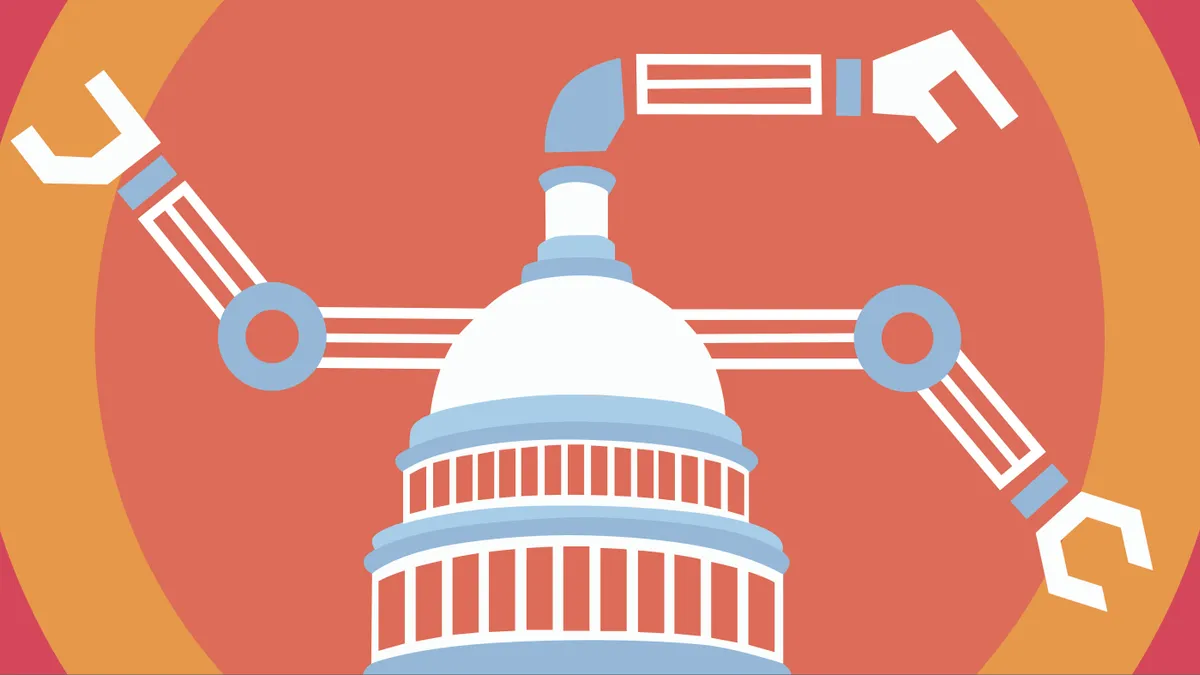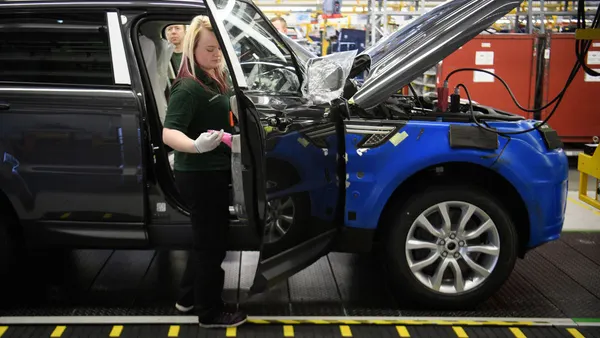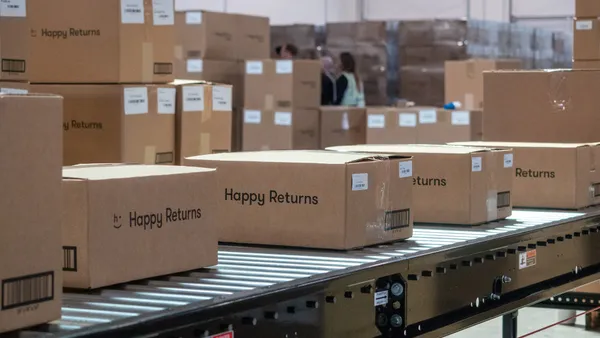Editor's Note: The following is a weekly column covering technology and regulation within the supply chain and logistics industries.
Data, data, data
Or should I say, jobs, jobs, jobs? The Bureau of Labor Statistics released its monthly jobs report this morning, announcing total nonfarm employment grew 313,000 jobs in February 2018, which according to MarketWatch was the biggest job gain since mid-2016.
The Reaction: Coupled with a fast-growing freight industry, the data suggests the U.S. economy is growing very quickly, and is on an upward trajectory nowhere near the peak.
Steel tariffs: The good, the bad and the ugly
When President Trump announced 25% tariffs on steel imports and 10% tariffs on aluminum imports last week, they were roundly condemned by most of the international community and economists and businesses alike.
But it's worth noting that tariffs can sometimes force American business to support American business, which, of course, is good news for American steel. And as Bloomberg columnist Conor Sen argues in this compelling read, investors, not consumers, will pay for the tariffs in the end.
Sen compares the tariffs' effects on industry to the tax law: if corporations believe they'll absorb potential benefits of the law, then won't they also absorb any resulting costs from the steel tariffs?
On top of that, business must tread carefully on price hikes, simply because there's a threshold for every company looking to raise prices for consumers. Raise them too high, and consumers will buy less or stop buying your product.
Furthermore, Canadian steel constitutes the majority of U.S. imported steel, and just yesterday, Trump signed the tariffs into law exempting both Canada and Mexico.
The Reaction: American steel loves the tariffs (obviously), but the tariffs are unlikely to have any major impact on the steel industry or the U.S. economy (especially since the comparable Bush tariffs implemented in 2002 had a very minimal impact on the long-term economy). Trump's move was a facade to show his support for American business.
AI can't stop, won't stop its world domination of business
CB Insights has released a host of reports recently describing how AI is completely upending retail, food, healthcare and just about every other industry.
Supply chains have been playing with AI for a while now, so it was just a matter of time before whole industries embraced the technology. About every week a port or a 3PL, a freight broker or a carrier announces some kind of new AI tool.
Just two days ago, a software company that traces carrier packages, LateShipment, announced its own AI initiative.
If companies aren't developing their own AI initiatives in-house, they're buying AI startups, as this report shows. Corporate acquisitions of AI startups skyrocketed in 2017, and as CB Insights' list shows, Amazon, Apple, Google, Facebook, Microsoft and Intel are some of the top acquirers.
The Reaction: Nearly everyone along the supply chain is investing in AI — if you're not, you might fall behind in the competition.
In case you missed it...
The Verge reports that Uber's AVs are delivering packages in Arizona, while Walmart submitted applications to use drones for farming, according to CB Insights. The Pentagon is now using AI cloud services from Google to analyze military drone footage, according to Bloomberg, feeding the growing trend of government services employing private sector technology.
Looking ahead
The Washington Post reports Democrats plan to produce their own $1 trillion infrastructure bill, and according to The Hill, House Speaker Paul Ryan thinks infrastructure overhaul will manifest itself in "five or six different bills" this year.
Needless to say, the fight to produce infrastructure reform is just beginning, but it look likes it isn't going to be as simple as the freight industries want it to be.













